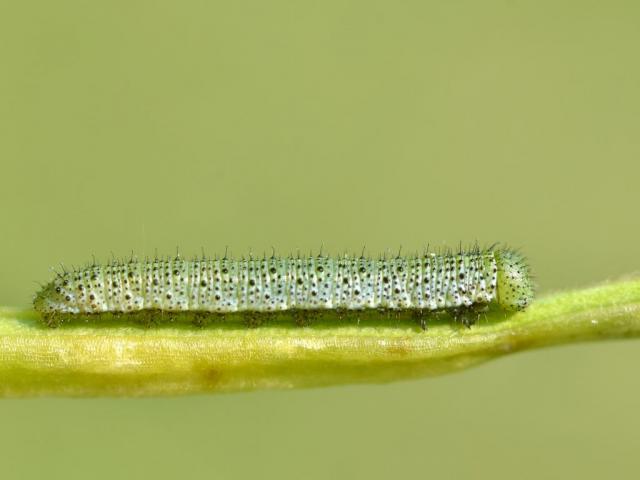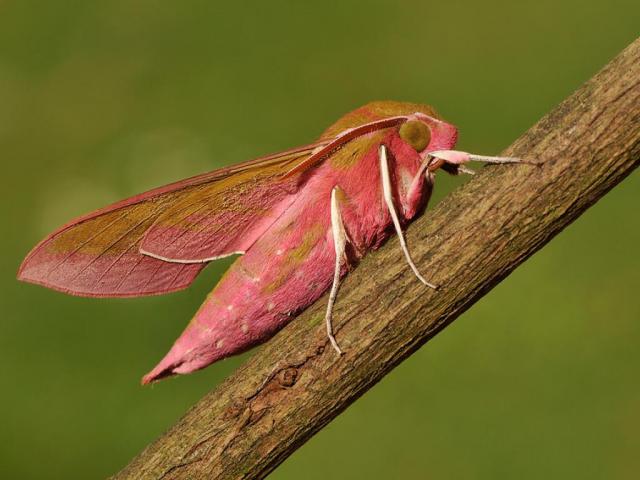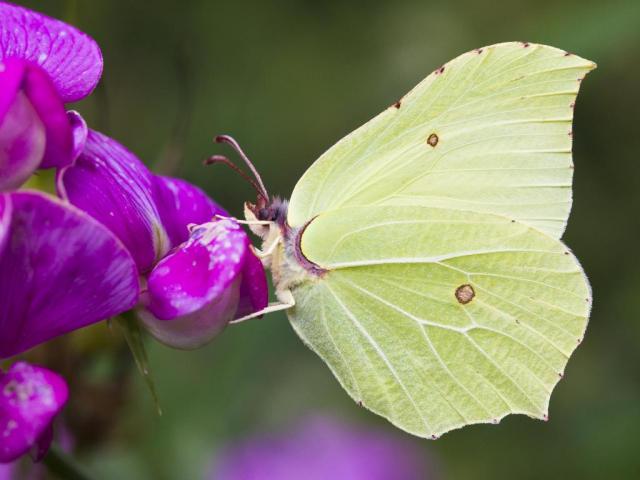I love this time of year, so many colourful and long-awaited flowers and plants have bloomed, making the harsh coldness of winter seem like a distant memory. That being said, there is still so much we can do to help butterflies and moths this June - something which has become especially important in light of the recently published Red List, which revealed half of UK butterfly species are endangered or near-endangered. We, therefore, have more reason to enjoy the sunshine while making changes, however small, that help these vital insects.
Hold off on mowing your lawn
Many people have taken part in No Mow May and let their lawns grow long this spring. But how about keeping it going and letting it Bloom in June! As I’ve mentioned in previous blogs, mowing your lawn can easily kill caterpillars feeding on the long grass. And to think you’ll be missing out on some of the most striking species we know of, such as the Large Yellow Underwing moth.
You can spot these moths by the flash of bright yellow which is revealed when they fly after being disturbed during the day. Meanwhile, Orange-tip caterpillars will soon pupate and stay in their chrysalis until next spring – so they need their undisturbed rest and it’s best if you can leave some wilder areas of the garden for species like this.
Not only are caterpillars living in the grass but so are a whole variety of different insects, making it a small but important ecosystem. Leaving your lawn un-mowed also allows wildflowers to come through which then attract butterflies and moths and allow them to pollinate and safely lay their eggs. Many people are even reporting that wildflowers such as the Common-spotted Orchid and Bee Orchid are popping up in their lawns, so let it grow and see what happens!

For anyone that really must cut the grass, putting your mower on a high setting so the caterpillars are closer to the ground can help them survive.
Plant to your heart’s content
As we all know, planting flowers will attract butterflies and moths to feed and pollinate. It doesn’t matter if you’ve gone for a specific colour scheme or if you’ve thrown caution (or your wildflower seeds) to the wind and have a complete array of textures, colours, shapes, and sizes.
If you’ve managed to keep your grass long, I can recommend Knapweed, Meadow Cranesbill, and Field Scabious as wildflowers to plant. These species are tall-growing and can therefore compete with long grass for sunlight and water. You can keep the wild theme going along the hedges and fences too, with native climbing plants like honeysuckle. This plant has particularly sweet-scented nectar for moths such as the Elephant Hawk-moth, and caterpillars of the beautiful Twenty-plume will feed upon it too.

Chat over a cuppa
Organisations such as Speak Carbon have found that when talking to people new to the topics of the climate crisis, the best way to go about this is a friendly, non-judgemental approach. We all need to spread the word of the benefits of making small changes to our gardens in order to protect habitats and biodiversity but keeping an approachable and friendly conversation style is the best way. However hard this may be, and I find it difficult myself especially when faced with apathetic individuals, it is the best chance we have as a global community to avoid alienating those who have not yet engaged in climate action.
Get ready!
This month you can also get ready for the launch of the Big Butterfly Count that runs from the 15th July until the 7th August. By familiarising yourself with the app and our ID checklist for your region you’ll be rearing to go!
Some of the species you can keep an eye out for are the strikingly bright Brimstone butterfly or the brightly coloured six-spot burnet moth which are particularly lovely to see.

Happy Gardening!
The Secret Gardener


